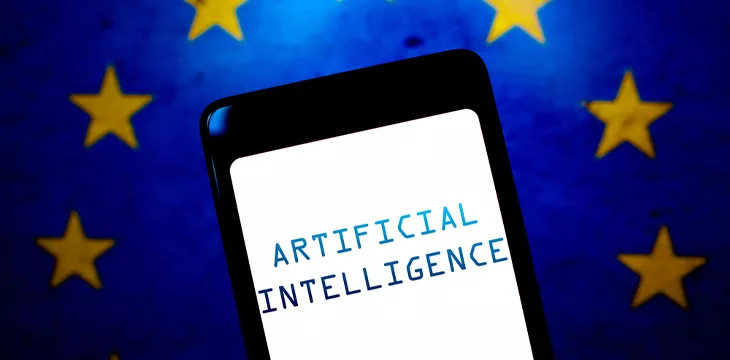|
Getting your Trinity Audio player ready...
|
The EU has often been accused of being slow-moving with a tendency to over-regulate industries. However, in the fields of both blockchain technology and artificial intelligence, it leads much of the rest of the world, quickly penning well-considered regulations to support innovation and mitigate risks.
In yet another example of this trend, on May 24, the EU Council agreed to expand the European High Performing Computer Joint Undertaking (EuroHPC). The amendment will include the objective of developing and operating local AI factories.
What are EU AI factories, and what will they be used for?
These AI factories will have supercomputers and dedicated data centers and will offer AI-oriented supercomputing services. So far, the EuroHPC has procured nine supercomputers, but this amendment would significantly broaden its scope.
Hosting entities will be eligible for a financial contribution covering up to 50% of the acquisition costs of AI supercomputers, and up to 50% of the operating costs can be covered.
The Council mandates that fair access to both public and private users is a must and that the hosting entities should be used primarily to develop, test, evaluate, and validate large-scale, general-purpose AI training models and apps as well as to further develop AI solutions.
EU is leading in both AI and blockchain technology
As I said at the beginning of this article, the EU is leading the way in regulating both blockchain technology and AI. In my view, that’s not a coincidence; both will play key roles in its Digital Decade plans.
On the blockchain front, the MiCA regulations are an example of how to regulate blockchain and digital currencies to encourage innovation while making it difficult for bad actors. They lay out supervisory and enforcement responsibilities, transparency and disclosure requirements, consumer protection measures, operational and prudential requirements, and environmental and sustainability considerations. The regulations also harmonize rules between EU members, so there can be no doubt about what is expected from firms operating in the industry—the true definition of regulatory clarity.
The EU has also recently passed the AI Act, a set of comprehensive rules for the development, deployment, and use of AI. The AI Act takes a risk-based approach, siloing AI models into four categories: unacceptable, high, medium, and low. It lays out clear rules around transparency and accountability, defines prohibited and restricted uses, and outlines penalties for non-compliance. Again, clear and unequivocal regulatory clarity.
Powerful pairing of AI and blockchain
Not coincidentally, blockchain technology and AI can help each other in a myriad of different ways. While firms like nChain are using AI to help scale blockchain, it, in turn, can be used to help mitigate some of the downsides of AI and create the accountability many are urgently calling for.
Blockchain technology is destined to play a role in both the development of AI and holding those who develop and use it accountable, acting as an immutable record of truth with time-stamped records of changes, interactions, inputs, and outputs. It can be notoriously difficult to follow digital trails to find out what happened, where, when, and why, but blockchain changes that.
Is it just a coincidence that the EU has so thoroughly regulated both technologies? Perhaps so. In any case, having done so will position it to utilize both in achieving its Digital Decade aims, which in turn will allow it to lead in 2030 and beyond.
In order for artificial intelligence (AI) to work right within the law and thrive in the face of growing challenges, it needs to integrate an enterprise blockchain system that ensures data input quality and ownership—allowing it to keep data safe while also guaranteeing the immutability of data. Check out CoinGeek’s coverage on this emerging tech to learn more why Enterprise blockchain will be the backbone of AI.
Watch: Cybersecurity fundamentals in today’s digital age with AI & Web3

 02-15-2026
02-15-2026 




